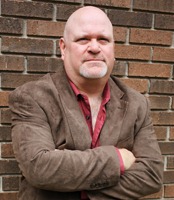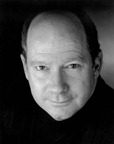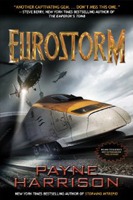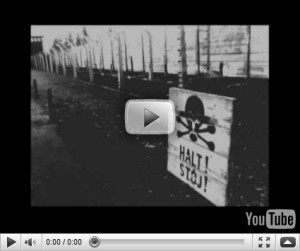My good friend and fellow thriller author Mark Terry is conducting a virtual book tour to launch his latest page-turner, THE VALLEY OF SHADOWS. Mark and I become friends 5 years ago when we shared a publisher. Over the years we’ve supported each other with advice and the exchange of ideas. We’ve also served as each other’s sounding boards and beta readers. Mark is a frequent visitor and friend of TKZ. Welcome, Mark.
By Mark Terry
Do you wish you could write like Lee Child? Or Stephen King? Or Nora Robert?
 Not: Do you wish you had a writing career like them? Ha! Sure, we all do, I suppose, at least at some level.
Not: Do you wish you had a writing career like them? Ha! Sure, we all do, I suppose, at least at some level.
But, do you wish you could write like them?
For a second, take your favorite writers and think about what makes them, well, them.
My favorite writers, if that’s possible to break down, are probably the late Robert B. Parker, John Sandford, Dick Francis, hmmm, probably Jonathan Kellerman. I could go on (and on, and on…), but let’s stop there for a moment.
I just listed, more or less off the top of my head, four very successful novelists (two dead) who have a lot in common and a lot different. Parker and Dick Francis, for the most part, wrote in the first person. Parker was all about sparkling dialogue, stripped down description and efficiency (in my opinion). Dick Francis, uh, horse racing, but aside from that, I think of the decency of his characters, his research, a kind of efficiency of prose. Sandford? Pace, man! A stripped-down prose that’s like a lightning rod to his characters’ hearts, and for me, I love the way he structures his third-person narratives. Kellerman? I think characterization, texture and description.
I ain’t any of them.
That isn’t to say that my own books might overlap somehow – I hope they do. Perhaps analyzing my own strengths is a fool’s game, but I would say pace for certain, efficient prose, dialogue, writing action.
It probably would not be a good idea if I decided to try and write like Jonathan Kellerman. My strengths are not his strengths. That isn’t to say that I don’t try to give the reader a sense of place, or that I don’t focus on characterization. I do. Hopefully all writers do. But the sort of stories I write and want to write – and have had some success with – focus on pace and action.
Where am I going with this?
Years ago, when I was sending novel after novel manuscript to a former agent, I sent him a manuscript for a novel about a consulting forensic toxicologist. He called me up almost immediately upon reading it, gushing, saying he loved it, it was original, it took the things that I was good at and used them. Then he went through some of my previous manuscripts and said something along the lines of, “With this manuscript you were doing Carl Hiaasen, and with this one you were doing Robert B. Parker, and with this one you were doing…”
 The point being, that perhaps for the first time I was being just Mark Terry. (Which all makes for an interesting story, except he couldn’t sell it).
The point being, that perhaps for the first time I was being just Mark Terry. (Which all makes for an interesting story, except he couldn’t sell it).
But I think there’s something vital to writers in this. It’s a little bit of: What do you bring to the table? What is uniquely you? JUST YOU. Then exploit it. Rock what you got.
How about you? As a writer, what makes your books unique? Are you content with your own voice and style? Or would you like to write like someone else?
Mark Terry is the author of 13 books. The fourth Derek Stillwater thriller, THE VALLEY OF SHADOWS, will be released in hardcover and as an e-book on June 7, 2011. His previous Stillwater novels – as well as other standalones – are available as e-books and other formats. Visit his website at www.markterrybooks.com.





